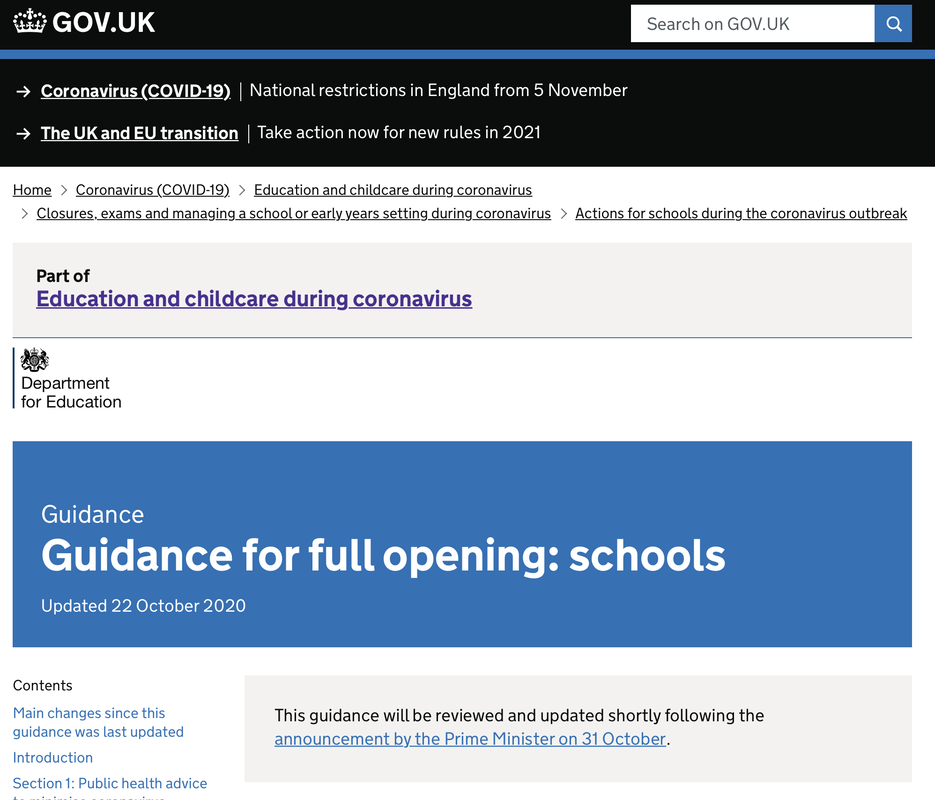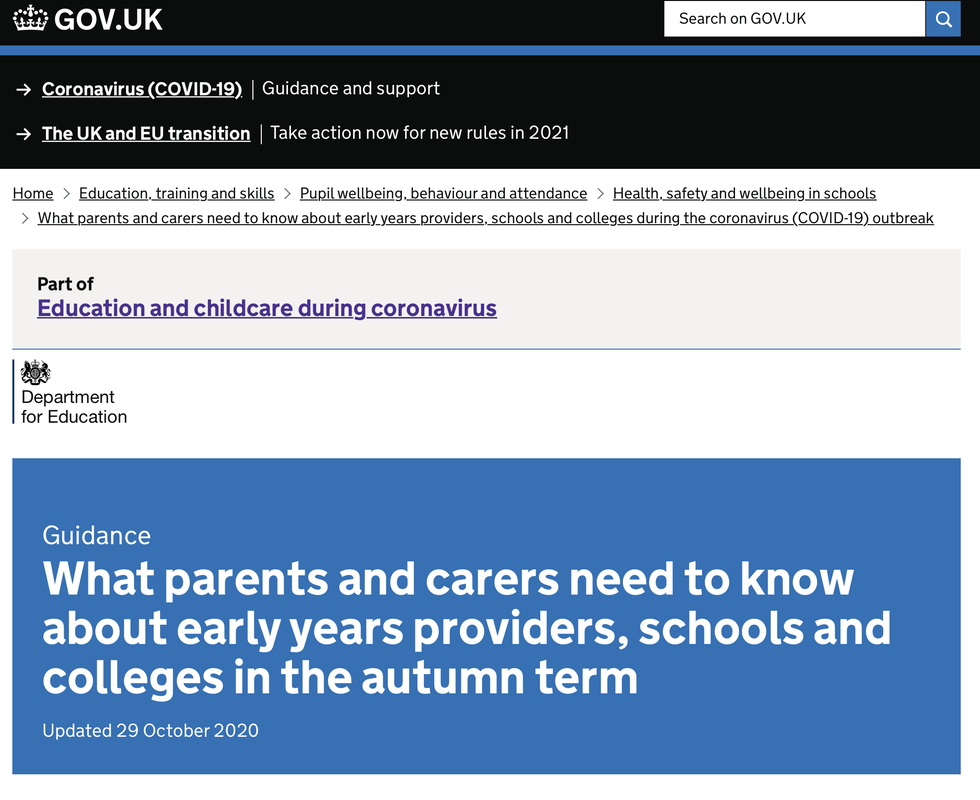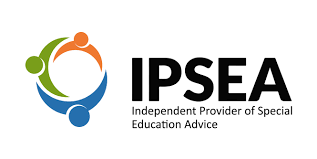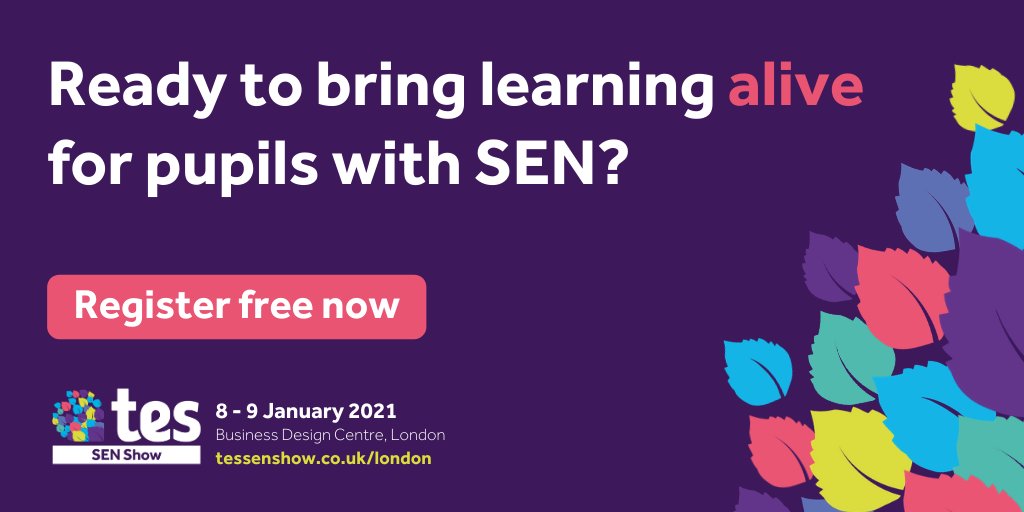|
by Douglas Silas
Specialist SEN solicitor
Can you believe that we are already now coming towards the end of this very strange and difficult year for everybody of 2020. I think we have also all now gradually become a bit desensitised to the incredible changes that we have seen throughout this year.
We are also now constantly being bombarded with (sometimes irrelevant) information from every which way that we turn. Keeping up with things takes up more and more of our valuable time, so we now have to be very careful, otherwise we may not have any quality time left to spend time with our family, to focus properly on work or to do the other tasks that we need or want to do. So, I have now decided to try and keep these updates more focused on providing just the information that I think that people need to know about what is happening in the world of SEN. (I will still try to recount a personal story at the end though, as some people tell me that this is what they really read my updates for!) In this update, you will find sections entitled:
Don’t forget, to ensure that you never miss one, you can get my SEN Updates personally by completing your email details above,
or by following me on one of the social media platforms I use (i.e. Twitter/Facebook). You can also share this SEN Update with others (please only do so if it may be relevant to them) by using one of the icons, usually to the right or at the bottom of this page.
CURRENT GUIDANCE ON SEN & COVID-19
I always try to provide up-to-date SEN news in my updates. The only difficulty with this is that my updates are only prepared once every half term, so there is always a lot of information out there for people to go through! As I do not want to overload people with information, I am going to try to focus in this section on the main current guidance (x 2) about SEN and Covid-19, which was provided by the DfE (Department of Education) at the end of last week, entitled: • ‘Guidance for full opening: schools’ [updated on 5/11/2020] and • ‘What parents and carers need to know about early years providers, schools and colleges in the autumn term’ [updated on 6/11/2020]. As both of these sets of guidance are very long and detailed, I would encourage you to read them for yourselves directly if they concern or are of interest to you, by clicking on one of the links above. However, let me quickly give you an overview here. ‘Guidance for full opening: schools’ [updated on 5/11/2020] Focuses on how the DfE expects schools to now operate and includes: • school operations • curriculum, behaviour and pastoral support • assessment and accountability • contingency planning to provide continuity of education in the case of a local outbreak Introduction, then set out in 5 sections, as follows: Section 1: Public health advice to minimise coronavirus (COVID-19) risks, which covers: • Risk assessment • The system of controls: protective measures • Prevention • Response to any infection This section then expands ‘Prevention’, to cover: 1. Minimise contact with individuals who are unwell by ensuring that those who have coronavirus (COVID-19) symptoms, or who have someone in their household who does, do not attend school 2. Where recommended, use of face coverings in schools 3. Clean hands thoroughly more often than usual 4. Ensure good respiratory hygiene by promoting the ‘catch it, bin it, kill it’ approach 5. Introduce enhanced cleaning, including cleaning frequently touched surfaces often using standard products, such as detergents 6. Minimise contact between individuals and maintain social distancing wherever possible a. How to group children b. Measures within the classroom c. Measures elsewhere d. Measures for arriving at and leaving school e. Other considerations 7. Where necessary, wear appropriate personal protective equipment (PPE) 8. Keeping occupied spaces well ventilated 9. Engage with the NHS Test and Trace process 10. Manage confirmed cases of coronavirus (COVID-19) amongst the school community 11. Contain any outbreak by following local health protection team advice It also covers ‘Alternative Provision’. Section 2: School operations: • Transport • Dedicated school transport, including statutory provision • Wider public transport • Pupils travelling from abroad • Attendance • Self-isolation and shielding • Pupils and families who are anxious about attending school • Action for all schools and local authorities • School workforce • Staff who are clinically extremely vulnerable • Staff who are clinically vulnerable • Staff who are pregnant • Staff who may otherwise be at increased risk from coronavirus (COVID-19) • Employer health and safety and equalities duties • Supporting staff • Staff deployment • Deploying support staff and accommodating visiting specialists • Recruitment • Supply teachers and other temporary or peripatetic teachers • Expectation and deployment of ITT trainees • Performance management and appraisal • Staff taking leave • Other support • Safeguarding • Catering • Estates • Educational visits • School uniform • Wraparound provision and extra-curricular activity Section 3: Curriculum, behaviour and pastoral support: • Curriculum expectations • Education is not optional • The curriculum remains broad and ambitious • Specific points for early years foundation stage (EYFS) to key stage 3 • Specific points for key stages 4 and 5 • Music, dance and drama in school • Minimising contact between individuals • Performances • Peripatetic teachers • Music teaching in schools and colleges, including singing, and playing wind and brass instruments in groups • Playing outdoors • Playing indoors • Singing, wind and brass playing • Social distancing • Seating positions • Microphones • Handling equipment and instruments • Handwashing • Avoiding sharing instruments • Handling scores, parts and scripts • Suppliers • Pick up and drop off points • Individual lessons and performance in groups • Social distancing • Avoid sharing instruments • Physical activity in schools • Catch-up support • Behaviour expectations • Pupil wellbeing and support • Hospital schools Section 4: Assessment and accountability: • Inspection • Primary assessment Section 5: Contingency planning for remote education: • Process in the event of local outbreaks • Contingency plans • Remote education expectations • Special educational needs • Vulnerable children • Delivering remote education safely • Remote education support Annex A: Health and safety risk assessment: • Sharing your risk assessment • Monitoring and review of risk controls • Roles and responsibilities • Wider guidance on the risk assessment process • Consulting employees (general) • Resolving issues and raising concerns • Approach to risk estimation and management Annex B: education, health and care (EHC) plans: • SEND legislation • Risk assessments for children and young people with education, health and care plans (EHC) ‘What parents and carers need to know about early years providers, schools and colleges in the autumn term’ [updated on 6/11/2020] Covers matters similar to the above but now from a parent’s perspective and also includes things like attendance/assessments/admissions/uniform/mental health & well-being/local restrictions etc. I hope that this helps you.
THIS UPDATE’S FOCUS IS ON…
IPSEA (Independent Provider of Special Educational Advice) If you received my weekly updates during March to July, focused on the Covid-19 ‘lockdown’, you may recall that I not only highlighted information that I found in the news, but also as much useful information that I could find on other helpful education/disability websites. I have therefore decided to try and now make the second section of these updates focus on organisations like these, to try and signpost people to information/resources that they are able to provide to people. In this update, I want to draw your attention to IPSEA (Independent Provider of Special Educational Advice) and some of the information that they provide on their website and tell you a little bit about what they do. I have been dealing with SEN cases personally as a solicitor for nearly 25 years now. Throughout this time, whether as a ‘baby’ lawyer, or the more experienced lawyer that I hope that I have now become, I have always been involved with IPSEA in one way or another. I have also been extremely lucky during that time to watch IPSEAblossom into the very effective organisation it is now, which consistently provides help to both parents (mainly) and professionals involved with SEN. Their website is updated regularly, including for the past seven months or so about Covid-19, school re-opening and SEN provision. Under their page entitled ‘Who we are’, they say the following: “Independent Provider of Special Education Advice (known as IPSEA) is a registered charity (number 327691) operating in England. IPSEA offers free and independent legally based information, advice and support to help get the right education for children and young people with all kinds of special educational needs and disabilities (SEND). We also provide training on the SEND legal framework to parents and carers, professionals and other organisations. Why families need IPSEA By law, children with SEND are entitled to educational support that meets their individual needs. Since IPSEA was formed in 1983, we have helped to improve educational support for thousands of children with all kinds of SEND. We do this by providing free and independent legally-based information, advice and casework support. Our unique range of services has been developed to ensure that families understand their children’s legal rights and entitlements and that they are empowered to enforce those rights to secure the right education for their child. How we help IPSEA has a suite of free downloadable legal guides and resources available to parents and carers. These guides are complemented by a free Advice Line which provides legally based information and next step advice on any educational issue that is a result of a child's SEND. IPSEA’s Tribunal Helpline gives next step advice on appeals and disability discrimination claims to the SEND Tribunal and is also the gateway to our Tribunal Support Service where a referral can be made for more extensive casework support from a volunteer, including representation at the hearing. Our advice services are delivered by a national network of around 200 highly-trained volunteers, supervised and supported by IPSEA’s Legal Team members. IPSEA provides legal training for parents, school staff, parent carer forums, support groups and other organisations in order to increase their knowledge and understanding of the SEN legal framework. The proceeds raised from our training courses helps fund IPSEA’s core services (Advice Line, Tribunal Helpline and Tribunal Support Service). We also work to challenge unlawful SEND policy and influence policy development at both a local and national level. Our policy work is informed by information and evidence captured through our training and advice services, and has been instrumental in shaping law and policy in the field of special educational needs and disability. IPSEA also provides information about the range of services that they have developed and on their page entitled ‘Our Services’ they say as follows: “Our unique range of services has been developed to ensure that families, and those advising them, understand children and young people’s legal rights and entitlements to education provision. Advice Line Our Advice Line provides legally based information and next step advice on any educational issue that is the result of a child’s special educational needs or disability Tribunal Helpline Our volunteers give next step advice on appeals and disability discrimination claims to the SEND Tribunal Tribunal Support Service We make referrals for more extensive support from a volunteer, including representation at Tribunal hearings Information Service Our Information Service is for general legal enquiries and will signpost you to fact sheets and resources on our website” If parents need help about SEN, IPSEA provide other information and also some model letters about which they say: “You can download and amend our model letters to use for your own purposes. You should read the relevant section of the site about each topic first to ensure you understand how and when to use these letters. EHC needs assessments · To request an Education, Health and Care needs assessment (Model letter 1) · To request a re-assessment (Model letter 2) · Complaining when the LA does not respond to a request for an EHC needs assessment within the 6 week time limit (Model letter 9) · Complaining when an EHC needs assessment is not being carried out properly (Model letter 7) · Complaining when the LA has not issued the draft or final EHC Plan following assessment (Model letter 10) Amending EHC plans · To respond to the draft EHC plan sent by the LA (Model letter 3) · Complaining when the LA will not consider the school or college you want named in your EHC plan (Model letter 14) · Objecting to the amendments the LA is proposing to an existing EHC plan (Model letter 4) · Complaining when the local authority does not send out the final amended EHC plan in time (Model letter 15) IPSEA also provides a range of training to both parents and professionals (see their page entitled: ‘Learn about and book training’) and they also provide two very informative pages, entitled ‘News’ (which is constantly updated) and ‘IPSEA Blogs’. As I say, IPSEA is a very effective organisation for those parents and professionals who need to know about SEN. I hope that this also helps you.
FORTHCOMING SEN EVENTS
In my last SEN Update (at the beginning of the Autumn Term 2020-21), I said that the main SEN events that were due to take place around this time (many of which had been previously due to take place earlier this year) have had to be put off until next year now. I know that the Autism Show ran a webinar week recently, but it will not be up and running in person again until next June/July 2021. In terms of more forthcoming SEN events, I would draw your attention to the following:
I do realise that further changes in the Covid-19 pandemic rules may again affect whether these events actually can go ahead in person or not, so I would encourage you to keep abreast directly of what is happening with them, if one of these events interests you.
I CAN’T MOVE I’M AFRAID…
Having been working from home on a full-time basis for the last seven months or so, I am no longer galivanting around the place in my wheelchair in London (where I live), or going on my little ‘adventures’ around the world (where I go on my charity bike rides). Although I can still go to events/places ‘virtually’, over these recent months I have been reflecting on some of the situations that I have found myself in over the years, some of which have been quite amusing sometimes. So, I want to share some of these stories with you here. In this update, I want to first tell you about what happened to me when I was supposed to be going to a very prominent event, where an eminent person was due to be giving a lecture. The event was held in a very prestigious place in the midst of winter. As I knew that it would be a sought-after event, I had booked places well ahead of time and took some of my team with me. I was really looking forward to it and put a lot of planning into making sure that I could be there. How different things would have been now if the lecture had been given virtually, so that I would be able to enjoy it from the comfort of my own home. As I cannot use public transport in my electric wheelchair, we all took a large people-carrier cab up to the venue (which can also transport my wheelchair for me). We were all very excited to be going to the event and I had planned for us to arrive at the venue in good time, in order to get ahead of the curve and get good seats near the front, where I would be able to properly see the speaker (I am afraid that I also have a visual impairment, so I need to sit as close as possible to the front of a seated event, in order to see the speaker properly). However, although we arrived in good time, when we got there and the cab driver took my wheelchair out of the cab for me to sit in, after I sat in it and only moved forward just a few inches, one of my front castors (the small wheels on the front of a wheelchair) came off, so I suddenly came to a complete halt and was almost tipped out forwards from the wheelchair. The castor had obviously been coming off slowly and had probably chosen this time to come off completely, so as to cause me the maximum difficulty! At the same time, the doorman of the venue, who could see that something was wrong, came down to ask me if he could help me with anything (the venue had a number of steps up to the entrance, so I had anticipated that I would be taken to a side entrance to get in, as I usually have to). When he saw the predicament that I had been placed into, he kindly brought out a chair for me to sit on. However, as it was quite a stately venue, the only chair that he could find to bring me was a very proper and ornate high-backed one, that looked a bit like a throne! Although it was very comfortable for me to sit upon, I now felt a little bit strange and self-conscious sitting on it at the front of this venue, watching people go inside, like I was some sort of king observing his subjects. Try as we may, we could just not get the castor back onto the wheelchair safely and, as time was now going by quickly and I could see lots of people arriving and going into the venue, I told the other members of my team that they should go in now and enjoy the lecture without me, which they reluctantly did, after my insistence. I then called for another cab to pick me up and take me home, but was then told that it would now be a 30 minutes or so wait, as it was the rush hour at the end of the working day. So, I waited on my ‘throne’ outside at the front of the venue, with my lopsided wheelchair besides me, getting colder and colder. Remember it was mid-winter and I had thought that I was traveling to and from the venue in a warm cab, so I was not really dressed up as warmly as I should have been. Every once in a while (although, to my increasing embarrassment, it seemed constantly), people going into the venue would ask me if I was alright and whether they could help me go in (they could see my wheelchair besides me, so had realised that I was physically disabled). I just kept smiling though as much as I could (it really was not easy) and just told them that I was fine, even though I was clearly demonstrably not! Finally, just before the cab arrived and helped to end this awful chapter in my life, although I had managed to by then to keep smiling and give out my standard response that I was fine to well-meaning strangers asking if they could help me go in, I could now no longer hide my frustration. So, when now it seemed the hundredth person asked me if I was alright and if I wanted to go into the venue, I heard myself now say through shivering and chattering teeth: “I would if I could, but I can’t move, I’m afraid!”.
With best wishes
Douglas
How useful do you find my SEN Updates?
Created with Quiz Maker
Comments are closed.
|
Archive
March 2022
|
© Douglas Silas Solicitors 2005-24
Authorised and Regulated by the Solicitors Regulation Authority (SRA no: 643718)
‘Douglas Silas Solicitors’ is the trading name of ‘Douglas Silas Solicitors Limited’, a limited company registered in England & Wales (company no: 10689991), whose registered office is Gable House, 239 Regents Park Road, Finchley, London, United Kingdom, N3 3LF. A list of members/directors may be inspected at our office.
Authorised and Regulated by the Solicitors Regulation Authority (SRA no: 643718)
‘Douglas Silas Solicitors’ is the trading name of ‘Douglas Silas Solicitors Limited’, a limited company registered in England & Wales (company no: 10689991), whose registered office is Gable House, 239 Regents Park Road, Finchley, London, United Kingdom, N3 3LF. A list of members/directors may be inspected at our office.











 RSS Feed
RSS Feed







